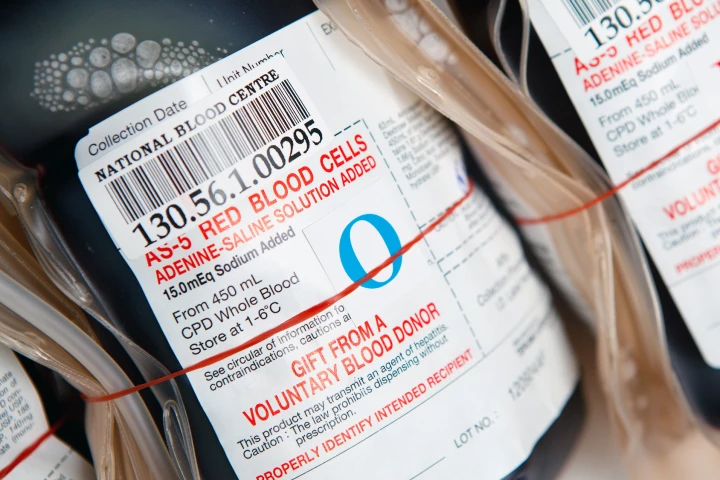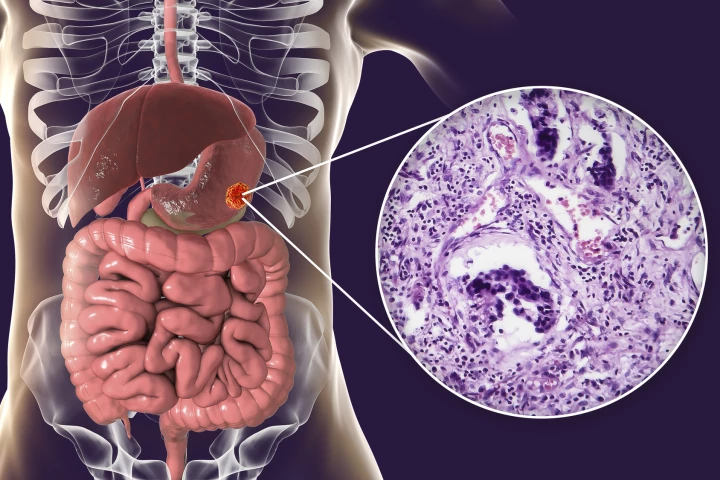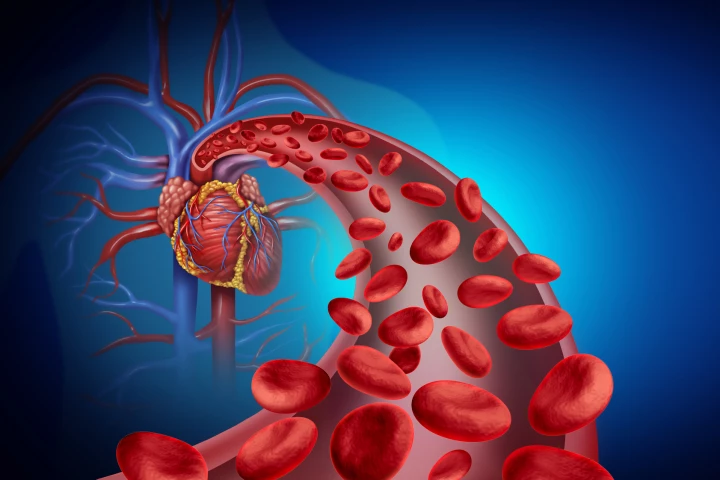Blood
-
Toxic “forever chemicals” are a major environmental problem, and a growing body of research shows they’re also a major health problem. A new study has found people with higher levels of PFAS in their blood have poorer sleep.
-
Leeches may be creepy, but many people find hypodermic needles even creepier. That's one of the reasons why scientists have developed a new leech-inspired blood collection device, which draws blood samples without the need for a big jab.
-
Using enzymes produced by a bacteria that almost everyone has in their gut, researchers have removed the antigens from red blood cells that determine blood type, putting us within reach of producing universal donor blood.
-
Researchers have developed a blood test that can accurately detect whether someone has been awake for 24 hours or more. They foresee the test being used like those that measure alcohol concentration or test for the presence of drugs in drivers.
-
A new technique, which involves melting bacterial DNA found in blood samples, could deliver diagnoses of potentially fatal infections faster than ever before. Results may be obtained in a few hours, instead of days.
-
It can be hard to motivate yourself to take preventative measures against heart attack, if you don't know if you're even at risk of having one. According to new research, however, a standard blood test can now provide that information.
-
Australian scientists have created the world’s smallest moustache, tiny enough to be modeled by a single red blood cell. Measuring just 5 microns wide, the micro-mo was designed to raise awareness for men’s health.
-
People with high blood pressure may soon be able to swap the daily pills for an injection every few months. A phase 2 clinical trial has shown that Zilebesiran can drastically reduce blood pressure for long periods of time with no side effects.
-
Researchers have identified a blood protein that can diagnose gastric and other cancers and is more accurate than existing biomarkers, even in the early stages of the disease. It may lead to the earlier diagnosis of these often stealthy cancers.
-
Researchers have developed a quick, cheap, and highly sensitive blood test to detect a telltale protein produced by cancer cells. The test can pick up a range of cancers before symptoms appear and could be key to early diagnosis of the disease.
-
Researchers have developed a simple blood test that improves the diagnosis of bipolar disorder, a commonly misdiagnosed condition. The test could ensure that people receive the correct treatment and identify potential drug targets for mood disorders.
-
Researchers have found that red blood cells have an innate ability to trigger a pathway that protects the heart from injury during periods of low oxygen, such as during a heart attack. The discovery could lead to new drugs that activate this pathway.
Load More











